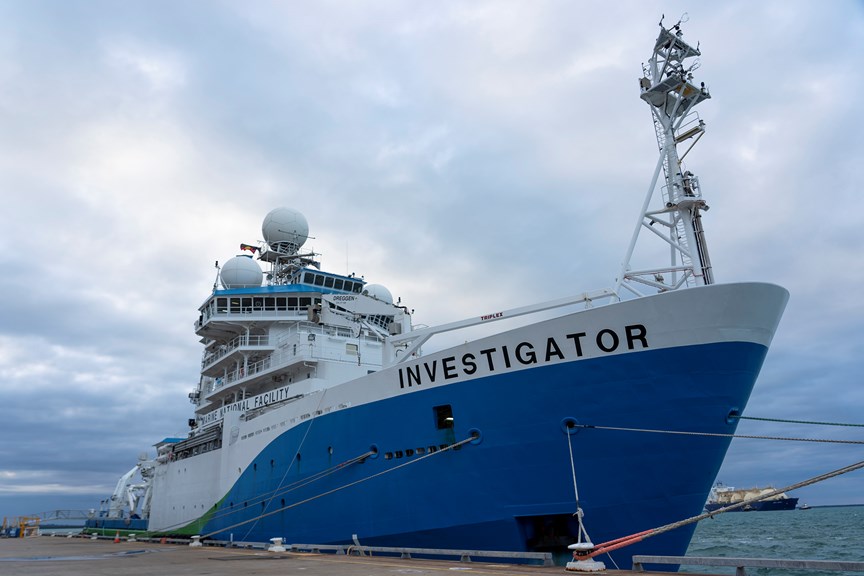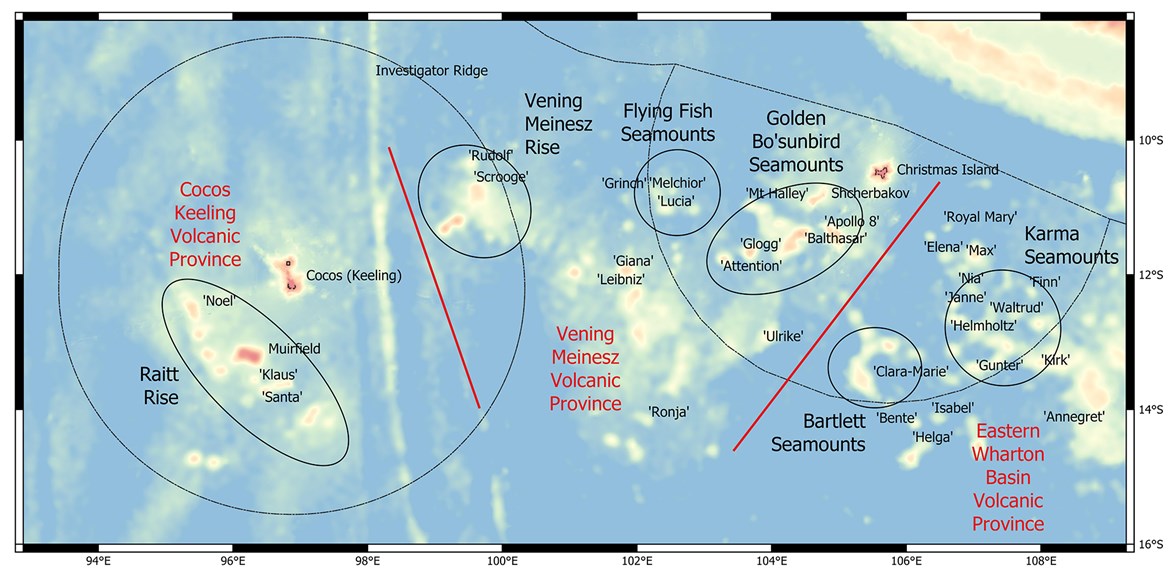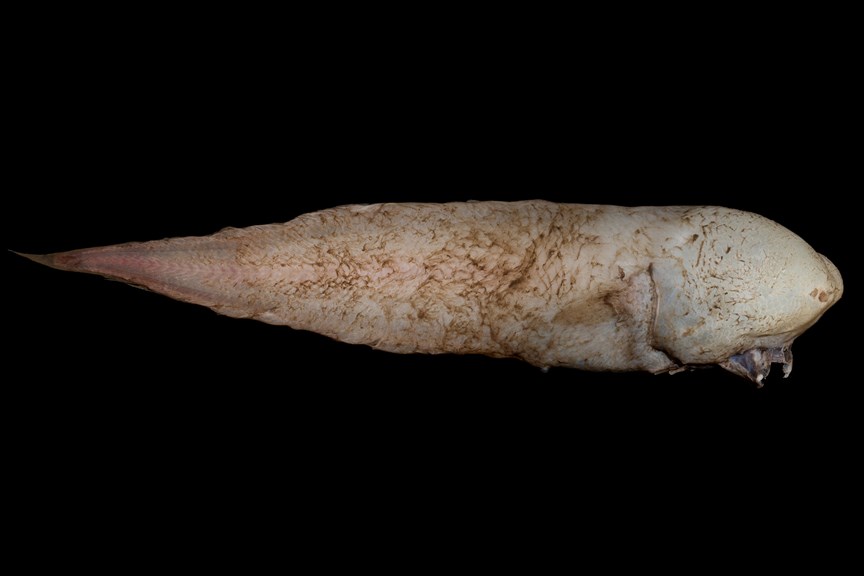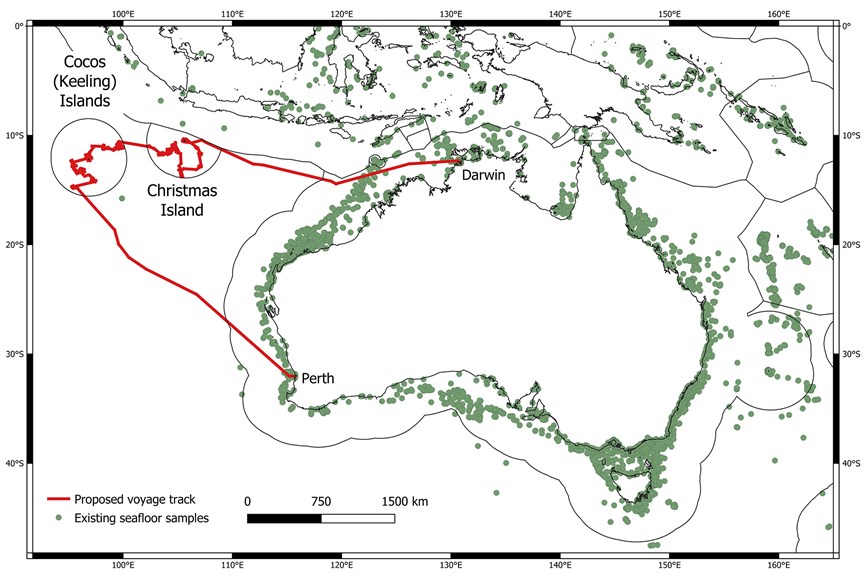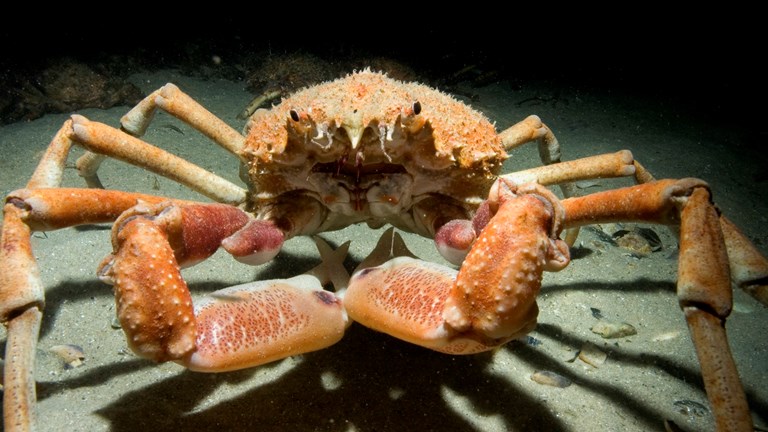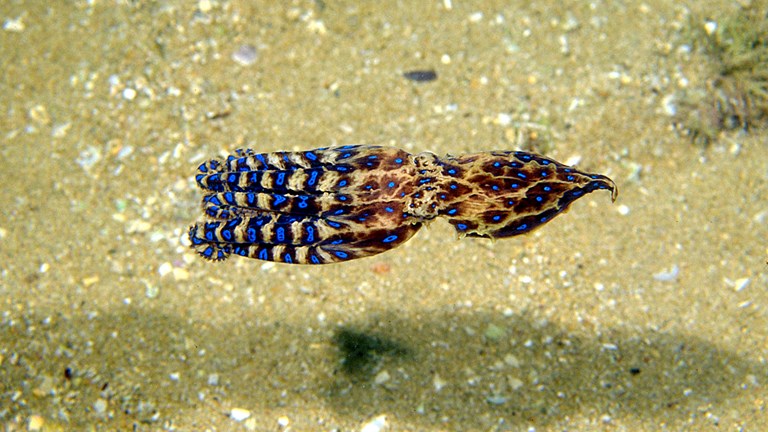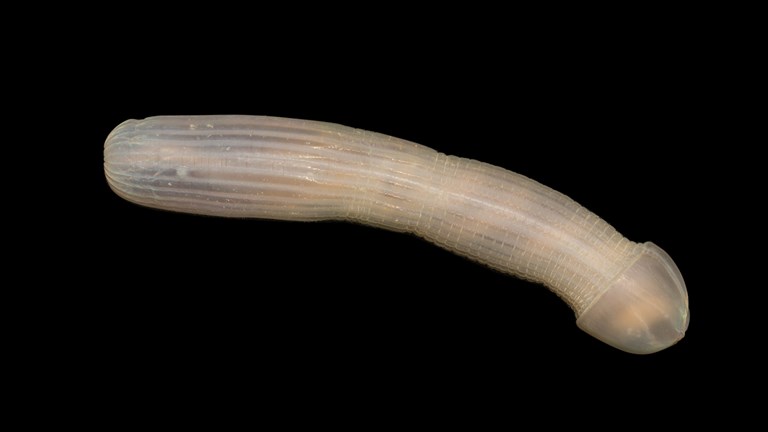Investigating the IOT: deep-sea science
Join us for a journey into Australia's unexplored deep-sea Indian Ocean Territories aboard the RV Investigator.
We are about to embark on a voyage into the unknown.
For the next 45 days a team of Museums Victoria scientists aboard the CSIRO’s research vessel (RV) Investigator will explore the previously undocumented deep sea around Christmas and Cocos (Keeling) Islands, in Australia’s Indian Ocean Territories (IOT).
‘These places are amazingly unexplored,’ says Dr Tim O’Hara, the voyage’s Chief Scientist and Senior Curator of Marine Invertebrates at Museums Victoria.
‘There are these huge seamounts that rise kilometres off the sea floor that we haven't mapped yet.
‘They’re enormous things—some 70 kilometres across—and the only reason we know some of them exist is because ships have run into them.
‘No one has seen these isolated areas before, we have no maps of them and no knowledge of what lives there, and this voyage will provide world-first baseline data of these unknown marine environments and their inhabitants.’
These deep-sea mountains formed during the Cretaceous period, more than 100 million years ago, and sit in the confluence of currents between the Indian and Pacific Oceans.
That, says Dr O’Hara, makes the environment an ideal candidate for discovery.
‘We are really excited about the prospect of discovering new species, perhaps even new branches of the tree of life, which until now have remained hidden beneath the waves in this unexplored region.’
‘This research will support plans for new marine parks for the region announced by the Commonwealth Minister for the Environment, the Hon Sussan Ley MP.
‘These massive parks will protect important sea life in this corner of the Indian Ocean.’
Dr O’Hara is a veteran of deep-sea research, and four years ago led a voyage from Hobart to Brisbane known as Sampling the Abyss.
‘In 2017 we went on a trip along the east coast of Australia and we sampled right down into the abyss—the really deep area of ocean,’ he says.
‘Scuba divers think 40 metres is deep; a nuclear submarine thinks 500 metres deep; we were sampling down to 4800 metres.’
‘It was just amazing place to be—full of exciting animals, stuff that we never knew occurred around Australia before, and it was very important to because we've learned really how animal life changes over the whole east coast of Australia at that depth.’
This time though, the RV Investigator will use its cameras, nets and sleds to sample habitats up to 5500 metres below the surface.
Australia’s continental plate is moving gradually north towards Indonesia, which has effectively cut off movement for animals between the Pacific and Indian Oceans.
‘We’re really expecting the animals in the Indian Ocean to be quite distinct from those in the East Australian region,’ says Dr O’Hara.
‘Maybe they diverged 25 million years ago—a lot of things have happened in that time and evolution has taken place and we are expecting different life forms.’
While the voyage is led by Museums Victoria, we are working in collaboration with Parks Australia, CSIRO, BushBlitz, and a team of partners—Australian National Fish Collection, Australian Museum, Western Australian Museum, South Australian Museum, James Cook University, University of the Sunshine Coast and University of Tasmania.
‘We can't do it by ourselves, we really need to bring institutions from around Australia together in order to be able to research new territories and discover new species,’ says Dr O’Hara.
The scale of the endeavour is immense—the research team will travel 13,000 kilometres over the next six weeks, using high-tech multi-beam sonar to map the structure of the seafloor.
‘The voyage has to be that long because of the remoteness of these islands—Cocos (Keeling) is halfway between Australia and Sri Lanka.
‘If you look at a map where all the dots show where we've sampled before, these regions are just completely empty except for around the coastlines of the two little islands,’ explains Dr O’Hara.
‘The deep sea covers half our planet…in this era of satellites and all their technological equipment that we have, there are still some places on the planet that are completely unexplored.’
The information and specimens will be added to the Museums Victoria State Collection and other national biological collections, but the voyage also serves another purpose.
‘This voyage will provide world-first baseline data of these unknown marine environments and their inhabitants,’ says Dr O’Hara.
‘We're excited because there’s an element of the unknown—there's going to be lots of amazing sea life and we're really pumped about going out there and finding it.’
You can follow the adventure with our Museums Victoria crew on social media.
Dr Tim O’Hara: Instagram and Twitter
Melanie Mackenzie: Instagram and Twitter
Dr Dianne Bray: Twitter
Tiffany Sih: Instagram and Twitter
Nish Nizar: Instagram
And me, Rob French, on: Instagram and Twitter
(Dr Martin Gomon, the museum's Senior Curator of Ichthyology is also on board with us, but doesn't do social media)
You can also keep track of the voyage at: https://mnf.csiro.au
This research has been made possible through a grant of sea time on RV Investigator from the CSIRO Marine National Facility.
Editors Note July 20, 2021: CSIRO has taken the difficult decision to suspend the current voyage of the research vessel (RV) Investigator as a precautionary measure to undertake a review of some of the ship’s high-pressure compression equipment. There are no immediate safety concerns, however, ensuring all equipment on board is assured to the highest safety standards is a priority. The planned voyage will be rescheduled as soon as it is able to.

